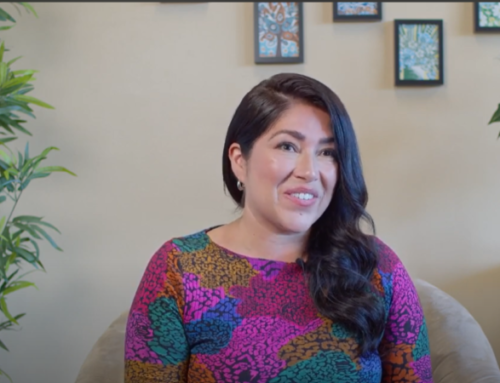COVID-19 and Intimate Partner Violence
Globally, 1 in 3 women will experience intimate partner violence in their lifetime.
Now, in the shadow of COVID-19 and its pandemic, communities, researchers, advocates, and survivors are seeing and experiencing a worsening of intimate partner violence (IPV).
We worked with Stanford University’s Department of Emergency Medicine and DigitalMedic to create this video series that aims to better inform health workers, community members, and survivors about the complexities of IPV while navigating the challenges the pandemic has created in seeking help.
This video series focuses on:
- The effects of the COVID-19 pandemic on intimate partner violence.
- Identifying the characteristics of an unhealthy relationship.
- Ways to help yourself or someone you love who may be experiencing intimate partner violence get the resources they need.
These videos have been created through collaborative efforts between the Department of Emergency Medicine at Stanford University, Next Door Solutions to Domestic Violence, El Comité de Mujeres Fuertes, and Digital Medic, to address the surge in intimate partner violence (IPV) around the globe during the COVID-19 pandemic. This unprecedented crisis has made it extremely difficult for IPV survivors, friends, family members, and community health workers to locate resources and content to address issues of IPV while navigating the pandemic. This series serves as a source of information for the broader community and for community health workers.
If you would like to use these videos in your community and are in or near Santa Clara County, you can contact us at dvhealth@nextdoor.org for technical support and guidance on working with survivors of domestic violence and related forms of gender-based violence.
If you are in crisis and need immediate assistance, please call our 24/7 Crisis Hotline (408) 279-2962.
If you are in danger, please call 911.
COVID-19 y la Violencia de Pareja Intima
A nivel mundial, 1 de cada 3 mujeres experimentará violencia de pareja en algún momento de su vida.
Ahora, a la sombra del COVID-19 y su pandemia, las comunidades, los investigadores, los defensores y los sobrevivientes están viendo y experimentando un empeoramiento de la violencia de pareja íntima (IPV).
Trabajamos con el Departamento de Medicina de Emergencia de la Universidad de Stanford y DigitalMedic para crear esta serie de videos que tiene como objetivo informar mejor a los trabajadores de la salud, los miembros de la comunidad y los sobrevivientes sobre las complejidades de la IPV mientras se enfrentan a los desafíos que la pandemia ha creado para buscar ayuda.
Esta serie de videos se enfoca en:
- Los efectos de la pandemia en la violencia de pareja íntima.
- Cómo obtener ayuda y lo que pueden esperar al hablar con un médico.
Estos videos han sido creados a través de colaboraciones entre el Departamento de Medicina de Emergencia de la Universidad de Stanford, Next Door Solutions to Domestic Violence, El Comité de Mujeres Fuertes, y Digital Medic, para abordar el aumento de la violencia de pareja íntima (VPI) en todo el mundo durante la pandemia del COVID-19. Esta crisis sin precedentes ha hecho extremadamente difícil que los sobrevivientes del VPI, amigos y familiares, y los trabajadores de la salud comunitaria localicen recursos y contenidos para abordar temas del VPI mientras navegan la pandemia. Esta serie presta servicios como fuente de información para la comunidad más amplia y para los trabajadores comunitarios de salud.
Si deseas utilizar estos videos en tu comunidad y estas localizado en o cerca del condado de Santa Clara, te recomendamos que te contactarnos a dvhealth@nextdoor.org para obtener apoyo técnico y orientación sobre cómo trabajar con sobrevivientes de violencia doméstica y otra formas de violencia de género.
Si tiene una crisis y necesita asistencia inmediata, llame a nuestra línea directa de crisis las 24 horas, los 7 días de la semana (408) 279-2962.
Si está en peligro, llame al 911.
La Violencia de Pareja Intima
Serie de Videos en Español
El Impacto del Covid-19 sobre la Violencia de Pareja IntimaVideo 2:
Entendiendo las relaciones saludables y las no saludablesVideo 3:
Reconociendo Relaciones Poco SaludablesVideo 4:
Coerción ReproductivaVideo 5:
Médicos AliadosVideo 6:
Apoyando a Familiares y Amigos









